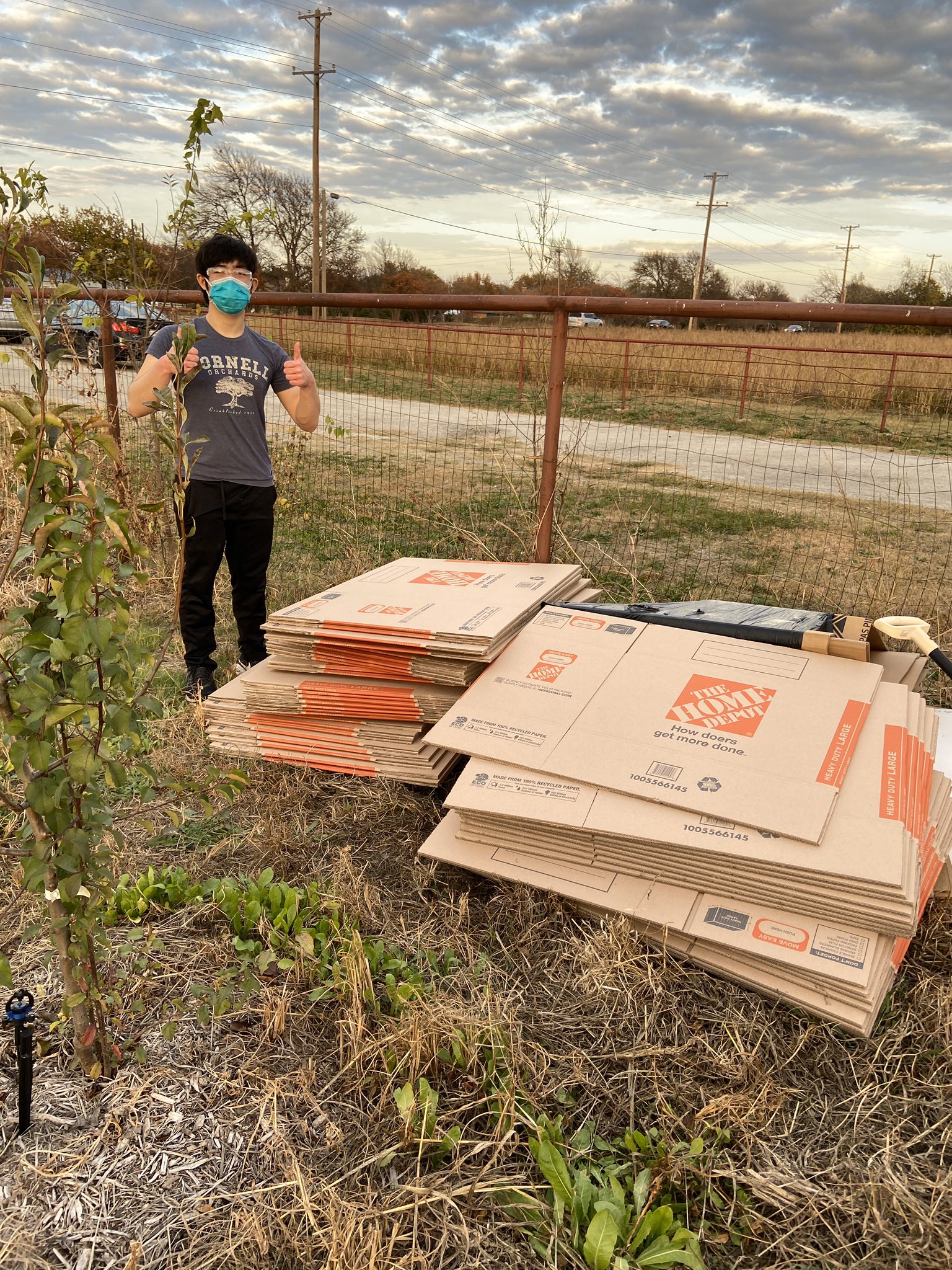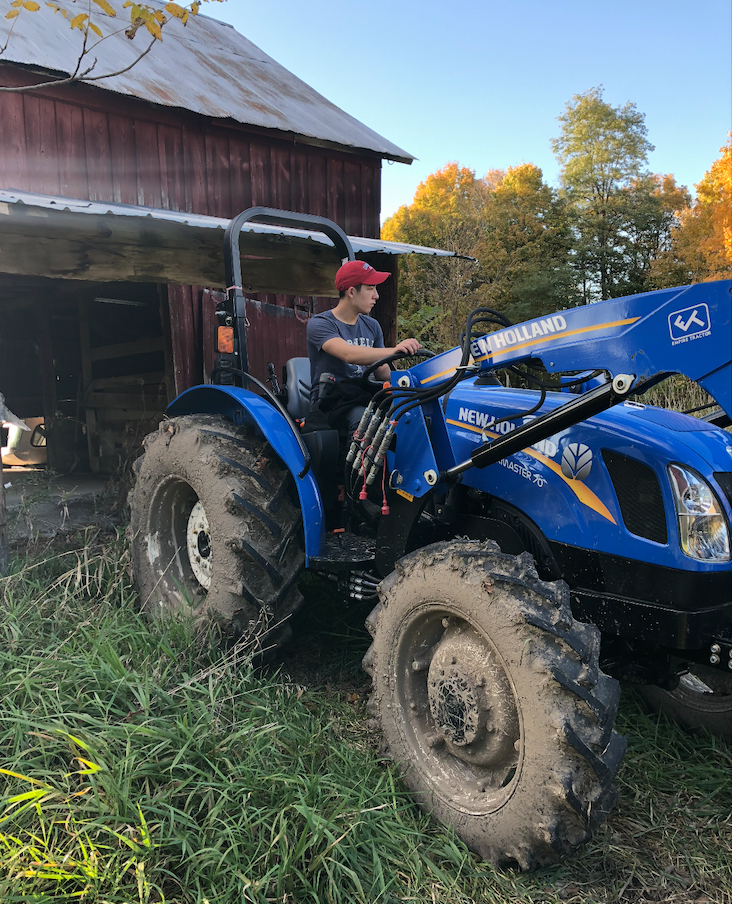By Ferd Hoefner, OFRF policy advisor
Right after taking office, President Biden issued an Executive Order on Tackling the Climate Crisis. Among many other things, the Order directed USDA to collect stakeholder input regarding climate change mitigation and resilience within the agricultural and forestry sectors.
Specifically, the Order asked USDA to “collect input from Tribes, farmers, ranchers, forest owners, conservation groups, firefighters, and other stakeholders on how to best use Department of Agriculture programs, funding and financing capacities, and other authorities, and how to encourage the voluntary adoption of climate-smart agricultural and forestry practices that decrease wildfire risk fueled by climate change and result in additional, measurable, and verifiable carbon reductions and sequestration and that source sustainable bioproducts and fuels.”
Agriculture and forestry groups responded, with over 2,700 comment letters filed, providing the Department with a wide diversity of views and much to contemplate. OFRF submitted recommendations, as did two groups of which OFRF is a member – the National Sustainable Agriculture Coalition and the Organic Trade Association.
OFRF’s comments focused on steps the Administration can and should also take on its own, without requiring further action from Congress, to assist farmers and ranchers meet the challenge represented by climate change, including calls to:
- Recognize and establish the organic method as a major strategy for carbon sequestration, greenhouse gas mitigation, and building resilience to the impacts of climate change.
- Increase USDA research investment into organic agriculture to become at least commensurate with the organic food market share, currently about 6% of total food sales in the US.
- Continue to build the capacity of NRCS to support the conservation and climate-mitigation efforts of organic producers.
- Restore Conservation Stewardship Program (CSP) Enhancements that specifically address the needs of organic and transitioning-organic farmers and ranchers.
- Ensure racial equity in implementation and delivery of new USDA initiatives related to Climate Smart Agriculture and Forestry, and in all existing research, conservation, crop insurance, and other USDA programs.
The “fair share” research investment point dovetails with OFRF’s advocacy with the Administrator and National Program Leaders of USDA’s Agricultural Research Service to ramp up their investments in organic research, moving from current less than one percent levels to six or more percent over the course of the next four years. OFRF has also encouraged Congress to not only appropriate $20 million for ARS organic-specific research in Fiscal Year 2022, but to also direct the agency to develop a five-year strategic plan for organic research and to assign national program leaders as part of that plan.
President Biden submitted his own budget requests to Congress on May 28. Despite asking Congress for the biggest increase in USDA funding in decades – a nearly $4 billion or 17 percent jump, the budget request from the White House included only level funding for the National Institute for Food and Agriculture’s Organic Agriculture Research and Extension Initiative and the Organic Transitions Program and no specific reference to organic research at the Agricultural Research Service. The White House proposal did however include an $8 million increase in NIFA’s “IR-4” program to support pest management for specialty crops, citing the need for additional organic and biopesticides as one rationale among several for the proposed near 70 percent increase.
The Biden proposal also calls on Congress to jump up the funding for the Sustainable Agriculture Research and Education (SARE) program from $40 million to $60 million and for the Agriculture and Food Research Initiative (AFRI) from $435 million to $700 million. Organic research proposals have been funded by both programs, particularly the SARE program, in the past.
In addition to those specific competitive grant programs, perhaps the most notable element of the proposed budget requests related directly to climate change. The request asks for increased funding for ARS including $99 million for clean energy, $92 million for climate science, and $95 million to work with the Department of Energy’s Advanced Research Projects Agency-Climate (ARPA-C). The request also would include an additional $17 million for the NIFA to accelerate development of climate smart and carbon neutral agriculture through transdisciplinary systems level approaches to sequester carbon and use clean energy to achieve net-zero emissions of greenhouse gases by 2050. None of these proposals includes any specific reference to organic, though most of them could potentially fund organic-relevant research.
Of course, the President proposes but the Congress disposes, so now attention turns to the congressional appropriations subcommittees who will begin marking up their FY 2022 government spending bills shortly. OFRF will continue to press for more adequate levels of organic-specific research dollars with the agricultural appropriators.
Beyond the Administration’s budget requests to Congress, great attention and speculation is also focused on how USDA plans to move to align USDA programs and regulations with President Biden’s climate agenda. While the 2,700+ public comments are being reviewed, the Department has also begun to take action, most notably with respect to the Conservation Reserve Program (CRP), the largest USDA conservation program by dollars, and to cover cropping incentives within the federal crop insurance program.
In April, the Farm Service Agency announced the re-institution of CRP incentive payments for targeted enrollments of water quality-focused conservation buffers as well as the creation of a new climate-smart practice incentive that will base payment rates on projected climate benefits of particular cover practices.
While this is good news, the Farm Service Agency (FSA) has not yet announced the re-establishment of the Organic Field Border Buffer Initiative, originally created in the final year of the Obama Administration to provide cost-share and land rental payments to organic farmers for installation of field border buffers through the Continuous Conservation Reserve Program (CCRP). This will hopefully be restarted soon.
On June 1, USDA’s Risk Management Agency announced a new, nationwide Pandemic Cover Crop Program that will provide a $5 an acre crop insurance premium discount for any farmer, including organic farmers, who have a crop insurance policy for 2021 and planted cover crops during the 2021 crop year. The funding is being drawn from the American Rescue Plan Act funds.
While a retroactive payment will not spur new cover crop adoption, if the program is repeated and becomes permanent, it could help increase adoption over time. With cover cropping part and parcel of most organic systems, this could also help organic farmers through lower premiums. Unfortunately, for 2021, Whole Farm Revenue Protection insurance — a good insurance option for diversified organic farmers — is being excluded from the new premium discount opportunity, a misguided oversight that will hopefully be corrected if the program is continued in future years.
Expectations run high that additional climate and agriculture related actions will follow these two initial announcements. OFRF will be watching and using every opportunity to ensure that organic farming is included as a key part of climate solutions. For OFRF’s administrative agenda, perhaps no USDA appointments matter more than those for the Under Secretary for Research, Education, and Economics and the USDA Organic Coordinator. After four months in office, there is still no word from the White House or the Secretary’s office about who will be named to fill these two important positions. But rest assured, once they are named, OFRF will be lining up meetings to share its wealth of knowledge and recommendations for advancing organic research!
Thanks to our climate partner, Clif Family Foundation for their support of our work! 
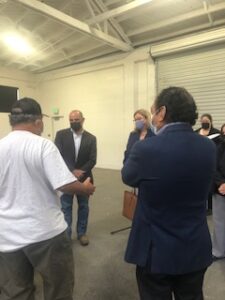 Two USDA COVID assistance programs were discussed, including the Pandemic Response and Safety Grant Program which has an approaching deadline of November 22.
Two USDA COVID assistance programs were discussed, including the Pandemic Response and Safety Grant Program which has an approaching deadline of November 22.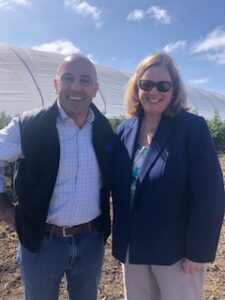
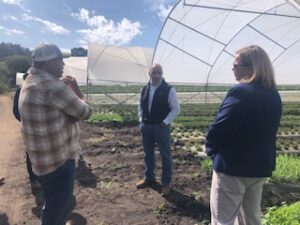
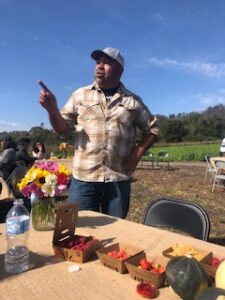



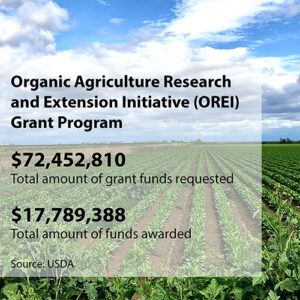
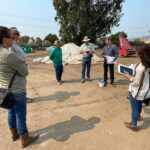
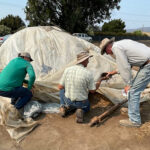
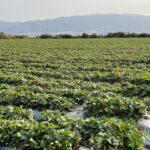
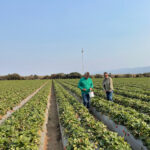
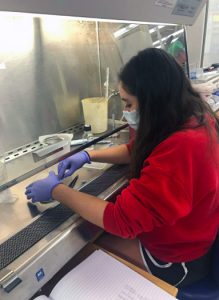 Personally, the course is thought-provoking and provides a way for me to learn more about organic farming practices. I have an interest in sustainable agriculture and am eager to learn more about the organic farming space, while also hoping to help farmers improve their practices with science-based information. Although the Midwest environment where I went to college differs quite a lot from Southern ecosystems, I have travelled abroad several times in order to broaden my knowledge of organic agriculture in other regions.
Personally, the course is thought-provoking and provides a way for me to learn more about organic farming practices. I have an interest in sustainable agriculture and am eager to learn more about the organic farming space, while also hoping to help farmers improve their practices with science-based information. Although the Midwest environment where I went to college differs quite a lot from Southern ecosystems, I have travelled abroad several times in order to broaden my knowledge of organic agriculture in other regions. 
